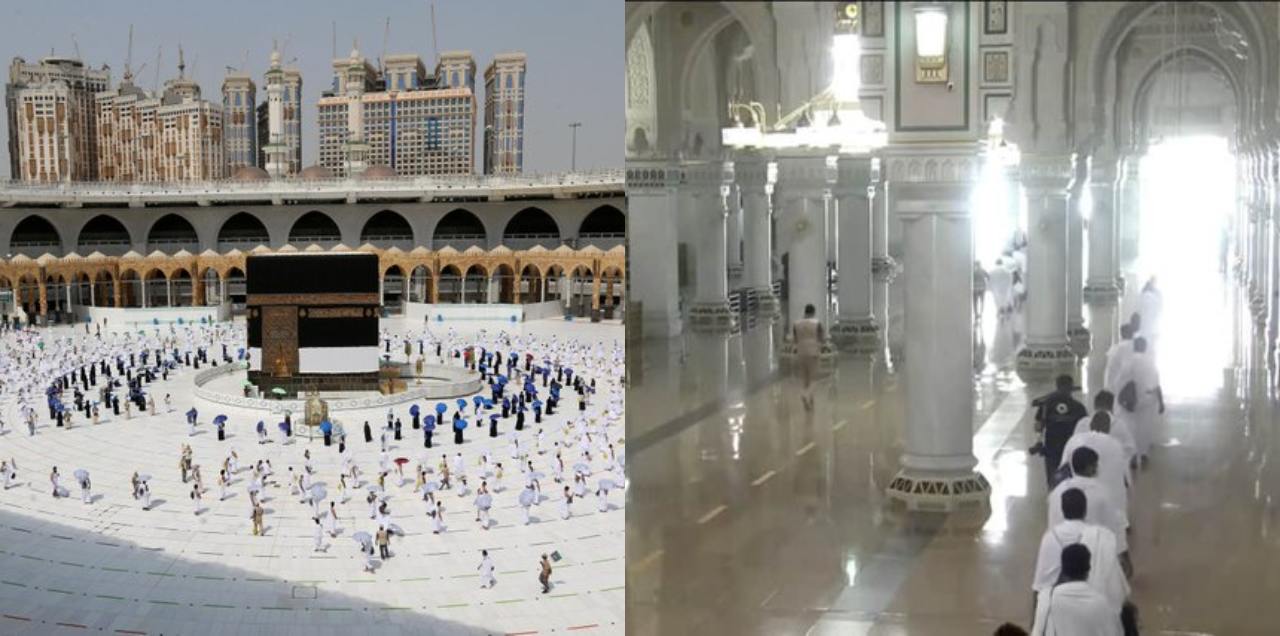Muslim pilgrims begin the annual hajj on Wednesday. The hajj this year has downsized as Saudi Arabia strives to prevent a coronavirus outbreak during the five-day pilgrimage.
The hajj is one of the five pillars of Islam and a must for Muslims who can afford it once in their lifetime. It is one of the world’s largest religious gatherings.
But this year on hajj only up to 10,000 people already residing in the kingdom will participate in the ritual as it begins. The number is a tiny fraction of the 2.5 million pilgrims from around the world that attended last year.
“There are no security-related concerns in this pilgrimage, but (downsizing) is to protect pilgrims from the danger of the pandemic,” Khalid bin Qarar Al-Harbi, Saudi Arabia’s director of public security told AFP.
Hajj 2020
Pilgrims will wear masks and observe social distancing. Those selected to take part in the hajj were subject to temperature checks before they begin performing the rituals. TV footage showed health workers sanitizing their luggage. Electronic wristbands have been given to some pilgrims. Authorities will monitor their whereabouts.
Workers, clutching brooms, and disinfectants, were seen cleaning the area around the Kaaba. Hajj authorities have cordoned off the Kaaba this year. Pilgrims will not be allowed to touch it this year.
Unique Scenes!
Tawaaf Al Qudum (Tawaf of Arrival) currently taking place in the Mataaf area of Masjid Al Haram. #Hajj
•
Let us be in charge of your Zabiha and have peace of mind this EIDVisit Now : https://t.co/BKzDiL8JG2 pic.twitter.com/L7DFZDSzkC
— ???????? (@HaramainInfo) July 29, 2020
Multiple health facilities, mobile clinics, and ambulances have also been established to cater to the pilgrims. The foreign press is barred from this year’s hajj as it begins.
Saudi authorities initially said only around 1,000 pilgrims residing in the kingdom would do hajj, but local media reports say as many as 10,000 are now taking part.
Some 70 percent of the pilgrims are foreigners residing in the kingdom, while the rest will be Saudi citizens, authorities said.
Broadcasted Scene: Hujjaj perform the Sa'ee after concluding Tawaaf Al Qudum (Tawaf of Arrival) #Hajj #haramaininfo pic.twitter.com/Cu2maZmut6
— ???????? (@HaramainInfo) July 29, 2020
All worshippers will be tested for coronavirus before arriving in Makkah to begin their hajj rituals. They will also have to quarantine after the pilgrimage as the number of cases in the kingdom nears 270,000.
They were given elaborate amenity kits. It includes sterilized pebbles for stoning ritual, disinfectants, masks, a prayer rug, and the ihram, according to a hajj ministry program document.
NOW | Hujjaj are leaving Masjid Al Haram after completion of Tawaaf for their residence in Mina.
The Hujjaj will spend the entire day and night in Mina (Day of Tarawiyah)#Hajj2020 #Hajj pic.twitter.com/OZruO7HLYa
— Amnah Mujahid (@AmnaMujahid29) July 29, 2020
Despite the pandemic, many pilgrims consider it safer to participate in this year’s ritual without the usual colossal crowds cramming into tiny religious sites, which make it a logistical nightmare and a health hazard.
Even in a regular year, the hajj leaves pilgrims exposed to a host of illnesses.
The hajj and the year-round umrah pilgrimages together rake in some $12 billion annually.







